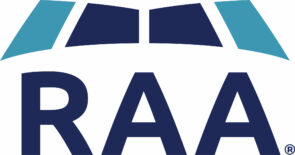
TIPS FOR WEATHERING HIGH INFLATION
- Posted by RAA
- On August 18, 2022
In our May eCom, you might remember we began a series of articles on the topic of behavioral finance, discussing how certain biases can influence your financial decisions. One of the biases mentioned is loss aversion bias, which is the tendency for humans to perceive a loss as being more severe than the benefits experienced by an equivalent gain. Financially, this means that investors sometimes make harmful decisions out of fear to avoid the potential pain of losing something (in this case money).
As we continue to experience high inflation, it’s normal to feel afraid as you wonder what effects inflation will have on your financial security. Will you need to tap into your savings? Should you buy gold to hedge against inflation?
All of these worries are valid, but with the pain and stress that the current financial climate is causing for so many of us, it’s important to understand which actions are helpful to avoid inflation-induced loss, and which will do more harm than good.
Do: Review Your Budget
We know… budgeting isn’t the most enthralling topic. But there are a lot of people who have no idea where their money is really going day in and day out.
It’s critical to stay aware of these details even during ‘normal’ inflationary periods, which means it’s even more critical during times like this.
Take a look at your monthly bills. Reassess. Is there anywhere you can cut back? As the saying goes, “Money not going out is the same as money coming in.”
Hopefully, for those of you who are conscientious of your budget and have a sound plan in place, you’re not feeling these kinds of budgetary pressures just yet. However, there’s no downside to getting out ahead of it. Depending on how long this persists, we may have to make some, even if just a few, lifestyle adjustments.
Do: Avoid Credit Card Debt
With some debt, as with a fixed mortgage, inflation is actually not as painful, because your payment stays the same but you’re paying your lender back with money that’s worth less. That’s not the case with credit card debt.
Like you might have heard us say before, credit card debtis one of the most expensive and destructive forms of debt. That’s because credit cards are typically tied to variable interest rates, so they are only going to get more expensive as the Federal Reserve continues to tame inflation by raising short-term borrowing rates.
Translation? Your money is worth less, but you’ll keep owing more.
So, if you have anyamount of credit card debt, we encourage you to put a plan in place to get it paid off as soon as possible. While it might seem counter intuitive to siphon money from a budget that’s already stretched and put it toward paying off a credit card, the financial benefits of doing so will more than likely be worth it in the long run. And if you don’t currently have any credit card debt, you should seriously consider the impact of interest rates before taking any on.
Don’t: Panic with Your Investments
Sometimes, the best thing you can do in a period of stress or fear is absolutely nothing. If you have a sound financial plan that was built to incorporate your specific goals, needs, and tolerance for risk, you shouldn’t stray from that plan.
And as difficult as it may be, fight the urge to stockpile financial products or investments that are touted as “safe havens,” such as gold or other commodities. All too often, these are sold using fear-based tactics, which, given the kind of investing and financial environment we’re in, may sound persuasive. However, making emotional decisions right now, no matter how good it might sound, will probably not serve you well in the long term.
Your advisor has taken periods of economic flux into account within your plan, and if you would like to discuss the potential impact of inflation or the market, he or she would be happy to do that with you. Your advisor can also discuss your options for tax-loss harvesting, which can be a helpful strategy for lowering your tax liability, especially in a state of market decline. This can potentially lower the loss you face when tax season rolls around and you owe money to the IRS.
Fortunately, while many of us feel like this inflation has ‘smacked us in the face’, it won’t last forever. While it sticks around, the best things you can do to protect yourself from unnecessary loss are to adjust and stick to your budget, address credit card debt if you can, and stay the course with the financial plan you’ve built with your advisor.
Please don’t hesitate to reach out if you have any questions or would like to review your plan.
ARE YOU READY TO LEARN MORE?
Request a call today to speak with an advisor and learn how RAA can help you achieve financial security now and in the future.



0 Comments